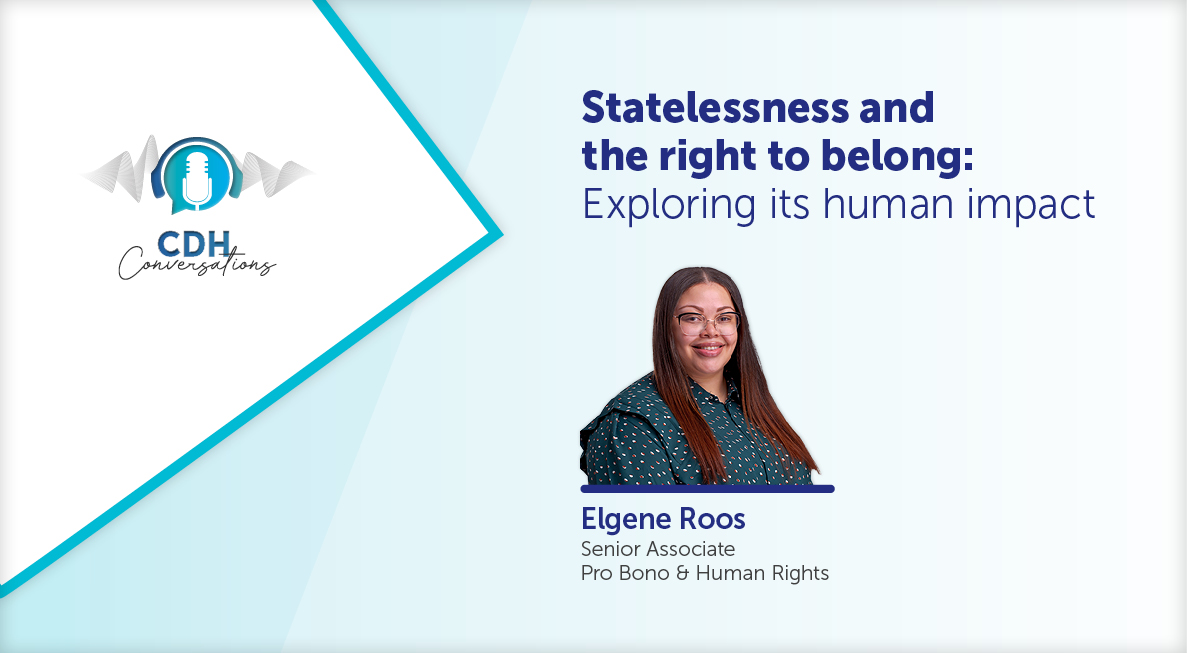Division of shares in a company on divorce: Lessons learned from De Sousa v Technology Corporate Management (Pty) Ltd
Relevant facts
Luis Vaz De Sousa (De Sousa) and Sharon Vaz De Sousa (Sharon) were married in community of property. De Sousa was the registered shareholder of 30% of the shares in a company called Technology Corporate Management (Pty) Ltd (TCM).
By virtue of their marriage in community of property, Sharon was the beneficial owner of an indivisible half of De Sousa’s shares. De Sousa and Sharon divorced in 2015. An order of divorce had been granted, but the court had not divided the joint estate, and De Sousa and Sharon had not reached an agreement as to how it was to be divided.
It was against this backdrop that the court was required to determine whether Sharon was (as she claimed) entitled to ownership of 15% of the shares in TCM and to be registered as such in the register of shareholders and, thus, entitled to a share of the payment of dividends by TCM.
The court’s findings
De Sousa’s principal submissions were that it is a general principle of company law that the company shall only concern itself with registered holders of shares, and not the “beneficial owners”, and that a company is only entitled to pay dividends to registered shareholders. By contrast, Sharon contended that when the community of property between her and De Sousa was dissolved as a consequence of the divorce order, their “tied” co-ownership of their joint estate became “free” co-ownership and divisible. Thus, so it was argued on her behalf, that ownership of half of De Sousa’s shares in TCM (ie 15%) became vested in her, and she became entitled to insist on being registered as a shareholder in the company. In this regard, she relied on the judgment of Ex Parte Menzies et Uxor in which it was held as follows: “…the co-ownership of their joint estate by spouses married in community of property is a species of ‘tied’ co-ownership, in which the shares of the spouses are not only undivided but also indivisible”, read with the judgment of Meyer v Thompson NO in which it was held that the effect of the grant of an order of divorce is to bring to an end community of property between spouses and require an equal division of the joint estate.
The court ultimately rejected Sharon’s contention that from the date of divorce De Sousa’s registered shareholding in TCM became immediately divisible such that she was entitled to insist on being registered as a shareholder. It held that the effect of the divorce order was to terminate the community of property between De Sousa and Sharon, and to require the division of the joint estate after the payment of liabilities. This meant that, absent any agreement to the contrary, Sharon did not on divorce acquire a right to claim any specific asset in the joint estate in specie or in undivided form. Her entitlement was to “a share of the net proceeds of the joint estate after the realisation of liabilities”.
In arriving at this conclusion the court also held that “a company recognises only its registered shareholders, that is, those whose names are entered in its register of members. The company is not concerned with the principal whose name does not appear on the register, usually described as the ‘beneficial owner’”. Thus, Sharon could not insist on a right to claim dividends.
Conclusion
Thus, there is a clear distinction between those persons who are registered shareholders and those persons who are beneficial owners but not registered in a company’s securities register. Shareholders must therefore make sure that those persons who are reflected as shareholders in the company’s securities register are indeed the persons who are intended to receive the dividend, exercise voting rights and transfer the shares and to be treated as shareholders.
The information and material published on this website is provided for general purposes only and does not constitute legal advice. We make every effort to ensure that the content is updated regularly and to offer the most current and accurate information. Please consult one of our lawyers on any specific legal problem or matter. We accept no responsibility for any loss or damage, whether direct or consequential, which may arise from reliance on the information contained in these pages. Please refer to our full terms and conditions. Copyright © 2026 Cliffe Dekker Hofmeyr. All rights reserved. For permission to reproduce an article or publication, please contact us cliffedekkerhofmeyr@cdhlegal.com.
Subscribe
We support our clients’ strategic and operational needs by offering innovative, integrated and high quality thought leadership. To stay up to date on the latest legal developments that may potentially impact your business, subscribe to our alerts, seminar and webinar invitations.
Subscribe




